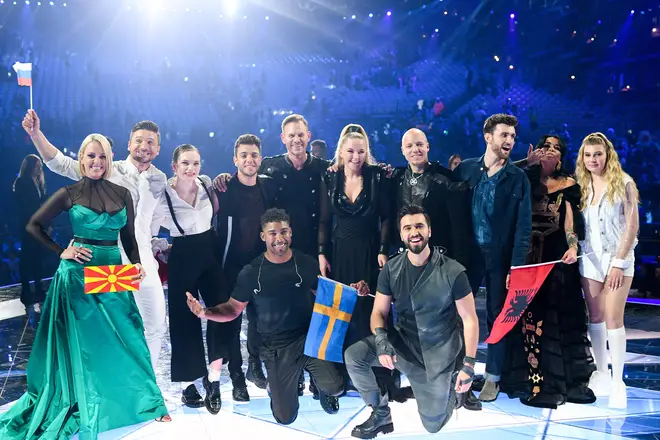On Air Now
Classic FM Breakfast with Aled Jones 6:30am - 9am
8 May 2023, 20:34

Te Deum is performed at the opening ceremony of the Eurovision Song Contest 2013
The Prelude to Charpentier’s ‘Te Deum’ has opened Eurovision for over sixty years. But how did this warlike 17th-century fanfare become the signature tune for the world’s favourite international song contest?
In the late 1600s, French Baroque composer Marc-Antoine Charpentier wrote his grand polyphonic motet Te Deum. And although he authored six settings, only four of them have survived.
The section we hear in the Eurovision titles is the first of the six original motets, the ‘Prelude (Marche en rondeau)’.
A brassy, warlike rondo, Charpentier’s motet was thought to have been performed in celebration of a French victory in the Battle of Steenkerque, in August 1692.
Read more: 10 of the best Baroque composers

The ‘Prelude’ to Te Deum that we hear in Eurovision was arranged by Guy Lambert, a 20th-century French organist famous for his transcriptions of Charpentier’s music. It was directed by Louis Martini, a French conductor who died in 2000.
It has been used for over sixty years, since the song contest was first held in the town of Lugano, Switzerland, on 24 May 1956.
And the ‘Prelude’ isn’t just the signature song of Eurovision; Charpentier’s fanfare is used across the European Broadcasting Union and can be heard in the opening credits of the Vienna New Year’s Concert, as well as in other Eurovision events. Te Deum was also the intro to Bud Greenspan’s Olympiad films.

In 2019, when the Eurovision Song Contest was hosted in Israel, the Israel Philharmonic Orchestra posted a video in celebration of the upcoming broadcast in which they play a reimagined reading of Te Deum.
By adding several instruments, including an oud and a darabouka drum, and flattening a few notes in the descending melody, they gave the symphonic piece an elegant middle-eastern twist.
Do you know the #Eurovison's musical theme? 🎶🎶🎶
— Israel ישראל (@Israel) May 12, 2019
We're pretty sure you've never heard it in THIS version. Take a minute & listen 🎧pic.twitter.com/2g8JFY9LEi